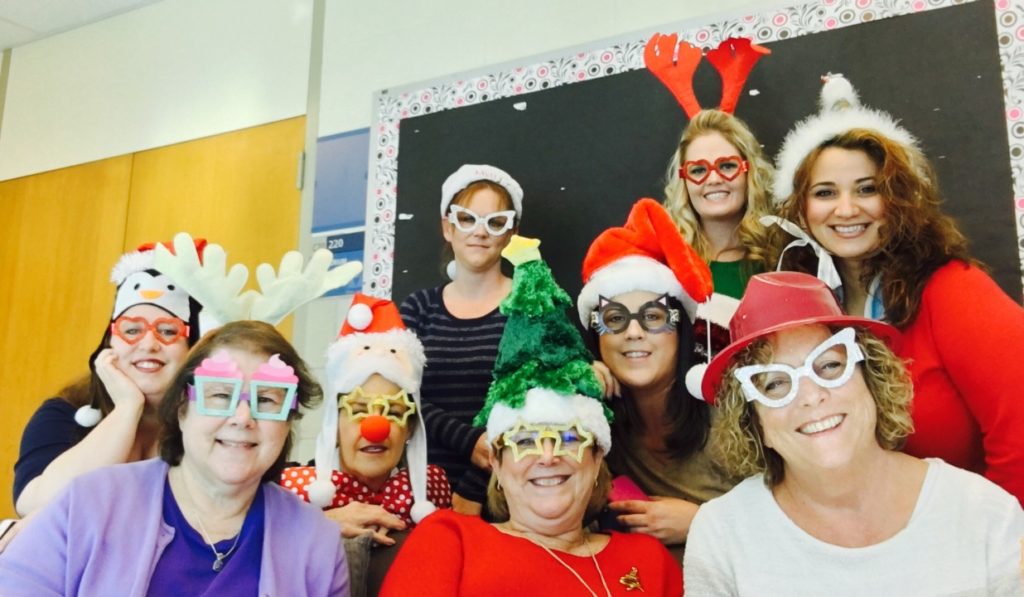
Where did you learn about real teamwork?
I don’t mean the “you do this, and I’ll do that” teamwork.
I mean the “I have your back” type of teamwork.
The type of teamwork you find in the tough times when the work is just too much for one person – when your will is bending under the heaviness of it all, but then you look up and find you’re not alone.
I was a bilingual teacher’s aide at DeZavala Elementary in Baytown, Texas, when I met Nelva. I couldn’t have been more than 22 and most likely a full-time student at the University of Houston.
For most of the day, I worked on phonics skills with first graders in a little book closet I had transformed into my classroom. But I was also recruited to do administrivia here and there for different departments and for the main office.

One day, I found myself in the office about an hour after dismissal, stuffing envelopes for an upcoming mail-out. It was a tedious task – nothing hard – but that’s what made it all the more maddening to me. I could have been studying or reading. But the letters had to be done by the next morning, so I worked quietly and determinedly.
Then Nelva came in. Nelva was an office aide who had worked at the campus for years. Everything about her was beautiful to me. Her black hair was cut Sally Field style, framing a heart-shaped face and large, luminous black eyes. She was always cheerful, and she was especially sweet to me. We hd a lot in common, growing up as the daughters of strong, independent, Mexican women. I suppose now she was at least ten years older than I was, but we got along famously, always chatting about this or that, sharing lunches, sharing jokes, sharing laughter.
When she came into the office that afternoon, she noticed the stack of envelopes and letters right away.
“You have to do all these?” she asked.
“Yes,” I answered. “They need them tomorrow.”
“Ay, no Michelle, that’s too much. Let me help you.” And with that, she pulled up a chair and grabbed a stack of letters and envelopes.
“No, Nelva,” I said. “I’m fine! Go home! It’s almost five already.”
And I really was fine. It was a lot of work, but I wouldn’t have dreamed of asking anyone for help. I didn’t want Nelva to stay late for me.
“But why?” she asked in her musical voice. “If you do it alone, you go home late. If I help you, we finish faster, and the work gets done, and we both go home happy.”
She didn’t take no for an answer, and there we sat, quickly finishing the work and enjoying extra time we got to spend together.
It’s been years since that happened. I haven’t heard from or seen Nelva since I worked at that school. But that memory has stayed with me, and I have relived it countless times.
I always get stuck on what she said, if you do it alone, you go home late. If I help you, we finish faster, and the work gets done, and we both go home happy.
I’ve played those words over and over in my head. And as a writer, I’ve always tried to find a more poetic way to say what Nelva said. But I’ve never come up with anything that makes more sense that what she said to me in the office that day.
If we do anything alone, it’s just harder.
But if we help each other, it’s just easier.
And since that day, Nelva’s words became my mantra. If I can help, I help. Whether that means helping someone to tackle a big project or just staying late after a meeting to clear tables, I do it. It doesn’t matter who it is, either. If there’s work to be done, and we could finish that work faster together, I’m in.
Over the years, the experience with Nelva also became my barometer for sizing up people up in the workplace and beyond. Wherever I go, I keep an eye out for the Nelva’s of the world. I look for the givers. I look for the real team players, and I’ll go out of my way to help them as much as they help others. People like Troy Jones. Veronica Niño. Amy Axtell. Joe Saavedra. Melissa Garza. I’ve been so blessed to have worked with such good people.
I think that’s how it should be. I think we should always be on the lookout for someone who needs a little bit of extra help. It goes deeper than collegiality and even deeper than kindness. It’s a sense of family and connected
